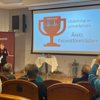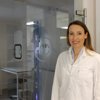-

Ingrid Lönnstedt: What does the p-value mean?
The smaller the better, and preferably smaller than 0.05. A p-value smaller than 5% means that the treatment effect is statistically significant at 5% significance level. But what does that mean? Read Ingrid Lönnstedt´s column to learn more.
-

Samuel Lagercrantz: We are currently seeing medical breakthroughs in these areas
Samuel Lagercrantz, Editor in Chief of Life Science Sweden, lists three medical fields in which we are currently seeing major breakthroughs and two fields in which we can see some long-awaited positive developments.
-

Anna Törner: The clinical trial – Periscope to reality
What happens to the patients in the clinical trial is not very interesting, writes Anna Törner in a column.
-

Founder of Bioarctic, Lars Lannfelt, is honoured: “I want to create something for the future”
It´s like a scientist’s dream: to be the world’s first with a drug that genuinely affects one of our major diseases. Lars Lannfelt and his company Bioarctic have achieved just that, and they are thus making a significant contribution to the history of Swedish medicine. He is now being awarded the Research!Sweden Award 2023.
-

The physician at the tech giant: “Observations in the emergency room made my mind up”
When Nasim Farrokhnia was in third grade at school in Tehran, the capital of Iran, her father gave her a book about Marie Curie, which soon became her favourite book. Perhaps her interest in science was born there and then, as science and new technology have since been a constant feature of her working life. Today, she is a Healthcare Manager in Microsoft’s Western Europe team.
-

Årets patientföreträdare utsedd på konferens
Under måndagen utsågs Årets Patientföreträdare 2022 på konferensen Fokus Patient. Priset gick i år till Föreningen för Hörselskadade och Döva barn med familjer.
-

The first drugs to slow down Alzheimer’s – but what does it mean for patients?
New treatments for early Alzheimer’s are bringing hope to thousands of patients and their families. The question is, who will get the treatment, how will the right patients be found in time, and will the healthcare system’s resources be sufficient? Life Science Sweden has spoken to Swedish researchers in Alzheimer’s who voice cautious hope but also see further challenges.
-

Charlotta Gummeson leaves Sahlgrenska Science Park – “It feels sad and exciting at the same time”
With mixed emotions, Charlotta Gummeson will leave her position as CEO of Sahlgrenska Science Park in October. “It feels sad and exciting at the same time. I’ve been in the thick of things and part of the development for so long now, but I’m also looking forward and thinking about all the new things that there will be in a freer role,” she says to Life Science Sweden
-

Astra Zeneca’s Sweden CEO: “We have great faith in our portfolio”
It all started with a summer job as an operator at Astra’s chemical factory in Snäckviken, just outside Södertälje. More than three decades and countless different assignments later, Per Alfredsson, born and raised in Södertälje, is CEO of Astra Zeneca Sweden, which employs 7800 people in Södertälje, Stockholm and Gothenburg. “It was a very special feeling to be in charge of the entire organisation,” he says in an interview about his career and potential future blockbusters.
-

Elon Musks hjärnchip får grönt ljus för att testas på människor
Ett implantat som ska göra det möjligt att styra datorer med tankens kraft. Nu har Elon Musks Neuralink fått klartecken för kliniska studier med sitt hjärnchip på människor – och söker försökspersoner.
-

Region polisanmäler vårdcentral – kräver tillbaka 85 miljoner
Västra Götalandsregionen polisanmäler den privatägda vårdcentralen Min klinik i Göteborg och kräver den på 85 miljoner kronor. Enligt anklagelserna har kliniken fakturerat för vård som inte utförts.
-

Heidi Stensmyren is eager for new challenges in the biotech industry
Heidi Stensmyren has served as President of the Swedish Medical Association, held a managerial position at Karolinska University Hospital and is now Medical Director at a biotech company. “I’m curious and like to have influence, so I’ve often chosen management roles,” she says.
-

Small robots to deliver pharmaceuticals to the body
Robots that can operate inside the body and a platform that combines ultrasound with AI. These are a couple of the technologies that have qualified for a list that aims to promote sustainable entrepreneurship.
-

Why the world renown researcher Marc Tessier-Lavigne resigns as Stanford´s president
In mid-summer, neuroscientist Marc Tessier-Lavigne announced his resignation as President of Stanford following allegations of manipulated study data. According to the reporter Theo Baker, who first reported the story, Tessier-Lavigne “rewarded the winners and punished the losers”. Here is the background of the story which has shaken the American scientific community over the summer.
-

Glad sommar! – och chefredaktörens lästips
Life Science Swedens chefredaktör sammanfattar året hittills och ger lästips inför sommaren.
-

Lucy Robertshaw: Artificial intelligence – is this really going to transform a patient’s life?
In a column Lucy Robertshaw reflects on how AI and new regulations will affect healthcare, innovation and the lives of future patients.
-

Anna Törner: The minute between life and death
“I have never told anyone about this day that happened more than 20 years ago. But I sometimes reflect on what happened, on what might have happened. When I try to understand why I haven’t told anyone, I find the answer: a feeling of shame. There is no forgiveness for something like this, even though it is very human to be distracted for a moment,” Anna Törner writes in a column.
-

He got inside the head of Sweden’s vaccine hunter
The hunt for the COVID-19 vaccine is the theme of the new book Vaccinjägaren (The Vaccine Hunter). It tells the story of Richard Bergström’s mission as Sweden’s national vaccine coordinator and the scheming that went on behind the scenes in Europe. Author and medical journalist Nils Bergeå co-wrote the book with Richard Bergström.
-

Elypta awarded one million USD from the Star Trek creator’s foundation
Swedish company Elypta, which develops methods for early cancer detection, has been awarded one million USD from an unexpected source: a foundation set up in memory of the creator of Star Trek.
-

KI’s new President: “We need to work closer together”
A closer link between research and education and a stronger “we-feeling” are aims that Annika Östman Wernerson sets out to achieve as the new President of Karolinska Institutet. She will not give up her research entirely though. “I think it’s crucial to maintain a close presence in the business,” she says.
-

“I am driven by the desire to develop a product that can be sold worldwide”
Ranked number one in the world by the WHO in diarrhoea research and soon in phase III studies for its vaccine candidate – Scandinavian Biopharma is rushing forward in the pursuit of the world’s first ETEC vaccine. Meet the company’s CEO Björn Sjöstrand.
-

Column: ”Cheating with pea flowers and does it matter whether you are right?”
Is it possible to forgive shortcuts or outright cheating in science - if it turns out that the researcher was ultimately right? Anna Törner discuss this topic in a column.
-

The Swedish National Board of Health and Welfare rejects prioritising andrology as a speciality
Male infertility can be linked to a shorter lifespan and several severe diseases, but when couples who want children are examined, the focus is on the woman. Experts in the field claim that andrology needs to become a speciality in Sweden to increase awareness and knowledge. But the Swedish National Board of Health and Welfare says that it is not a priority.
-

“An entire industry is about to be wiped out”
According to Jennie Ekbeck, CEO of Umeå Biotech Incubators, Sweden risks not having any small diagnostic companies left in five years.
Få tillgång till allt innehåll på Life Science Sweden
Ingen bindningstid eller kortinformation krävs
Redan prenumerant? Logga in
Gäller endast personlig prenumeration.
Kontakta oss för en företagslösning.